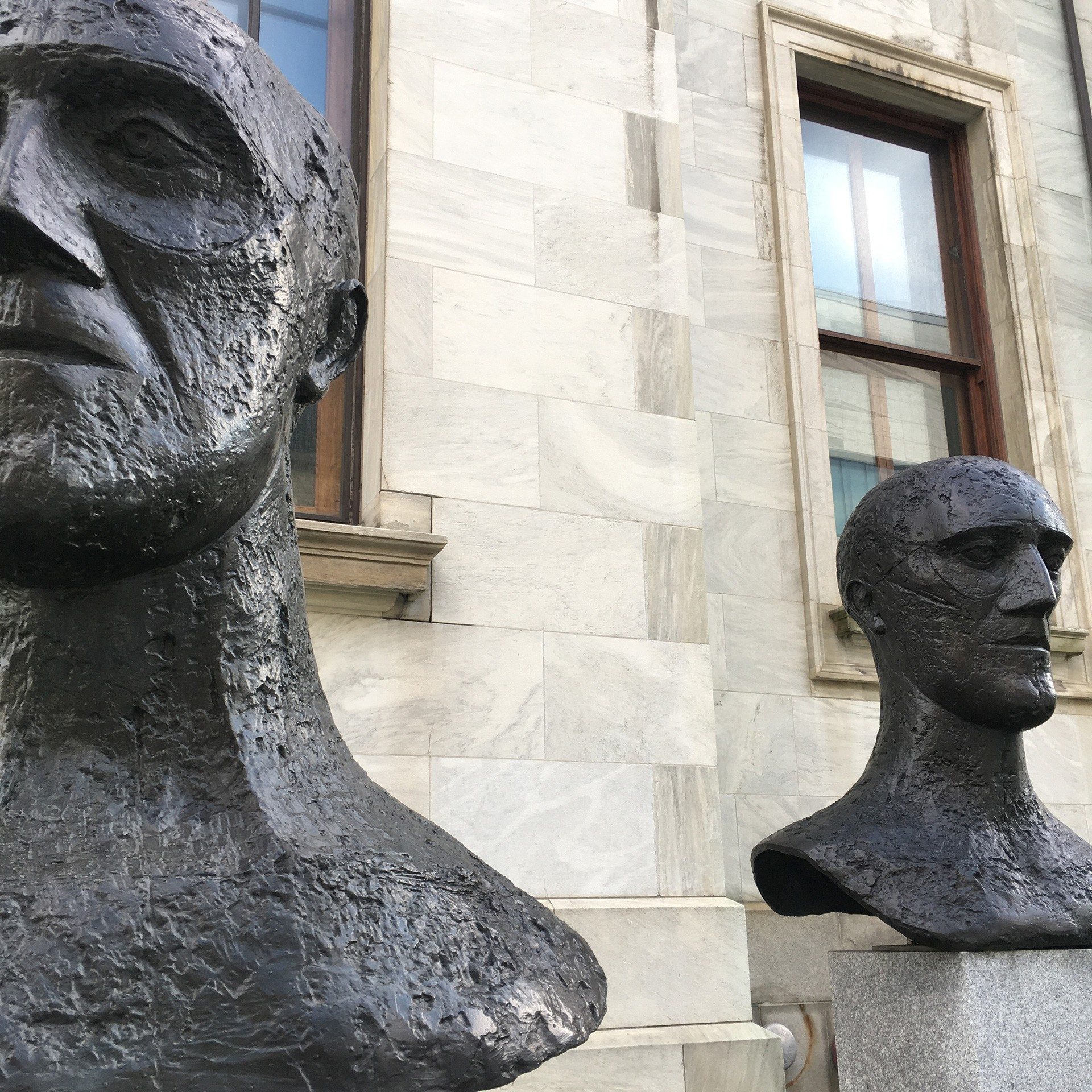GRADUATE PROGRAMS
The Department of Art History’s Graduate Program takes pride in fostering a mutually supportive, inclusive and collegial environment. Our goal is for our students to think critically, to expand their historical knowledge, to improve their research skills, to fine tune their writing, to gain confidence at speaking in public, and to get involved in various cultural activities, on campus and beyond.
Concordia is also ideally located for graduate studies, as it is at the heart of a diverse, cosmopolitan city that has much to offer in terms of research and internship opportunities.

MA in Art History
How have diverse artistic and architectural cultures developed in the past? How are artwork and spaces experienced and discussed in the present day? And how might art, architecture and design respond to urgent social issues and play a role in shaping a more just and equitable future? The Department of Art History’s MA program seeks to train emerging scholars who engage with such historical and contemporary questions. While our program’s focus has been on settler, diasporic and Indigenous art in Canada and North America, we are continuing to expand to include more global perspectives.
PhD in Art History
Concordia’s Art History doctoral program is an integral part of Montreal’s inter-university PhD, Canada’s largest art history program. The inter-university PhD in Art History is a unique bilingual program composed of many faculty members and graduate students from Université de Montréal and the Université du Québec à Montréal. Concordia’s doctoral program has been recognized for fostering innovative research on historical and contemporary art objects and practices, as well as the critical study of visual and material culture more broadly (including print culture, photography, interior design, craft, and fashion). Candidates in our Interuniversity PhD program can complete their doctoral seminars and other assignments in English, in French or a combination of both.

Interdisciplinary graduate programs
Prospective graduate students who are attracted to Art History but whose scholarly interests and/or creative projects fall outside of traditional disciplinary boundaries are encouraged to apply to the Individualized Program (INDI, open to both MA and PhD level students), or to the Humanities (HUMA) program (PhD level only). These two unique and innovative programs enable students to shape their own interdisciplinary research trajectory and to potentially develop a research-creation project. Art History faculty members often act as major or minor field supervisors to INDI and HUMA graduate students.
Graduate funding
All graduate students admitted to the MA or PhD program are considered for funding and awards at the point of admission. Students are also encouraged to apply for various external scholarship (such as FRQSC and SSHRC) and they receive faculty support and mentoring during the application process.
Student research and activities
Graduate students play a vital role in our programs and are at the forefront of the Department of Art History’s research initiatives. All graduate students are part of Concordia University’s Art History Graduate Student Association (AHGSA). AHGSA endeavours to enhance the academic life of all graduate students involved in the study of art. Aside from promoting the research of students enrolled in the Art History, HUMA and INDI programs, AHGSA organizes social and academic events that foster dialogue and contribute to the development of its members’ graduate studies, foremost through its annual conference. AHGSA also provides a voice for its membership by sitting on various departmental committees. Other important student organizations such as the Ethnocultural Art Histories Research (EAHR) group, a 100% student-driven working group, aims to increase the visibility and support of students and faculty from diverse cultural communities who are invested or interested in engaging with ethnocultural art histories research across various disciplines.
